
Our discussion with Dr. Ayesha Al-Qahtani about “The role of the father in instilling language, values, and religion in children.”
The Expert Group Meeting (EGM), organized by the Doha International Family Institute (DIFI), in partnership with the United Nations, Department of Economic and Social Affairs (UNDESA), the International Federation for Family Development (IFFD), the League of Arab States (LAS), and the United Nations Population Fund (UNFPA). The EGMs identify challenges and emerging issues, focusing on the contemporary megatrends and their consequences for families, several aspects of parenting and parenting education, as well as the modalities for the preparations for the 30th anniversary of the International Year of the Family (IYF+30).
The Expert Group Meeting (EGMs) discusses how understanding global families, family trends and policies and family education contributes to evidence-informed decisions, evidence-based policies and programs, and evidence-inspired innovation in countries, communities, and organizations around the world, as well as sharing information and insights and made detailed recommendations framed around research and data collection.

The interlinkages between migration, urbanization, climate change and technological and demographic trends were raised at an event organized by Doha International Family Institute (DIFI) a member of Qatar Foundation during the Expert Group Meeting (EGM) held in Kuala Lumpur, Malaysia.
The meeting highlighted the New Urban Agenda and explored ways to achieve inclusive, safe, resilient, and sustainable cities, and envisaged several outcomes including underlining the impact of migration on transforming family structures and analyzing strategies for optimizing the benefits of technology while minimizing its drawbacks on family relationships. They also discussed the policy lessons learned from Asia that can be applied globally, and the potential contributions of global experiences to the Asian context, interlinkages between migration, urbanization, new technologies, and climate change, said the statement issued by Qatar Foundation.
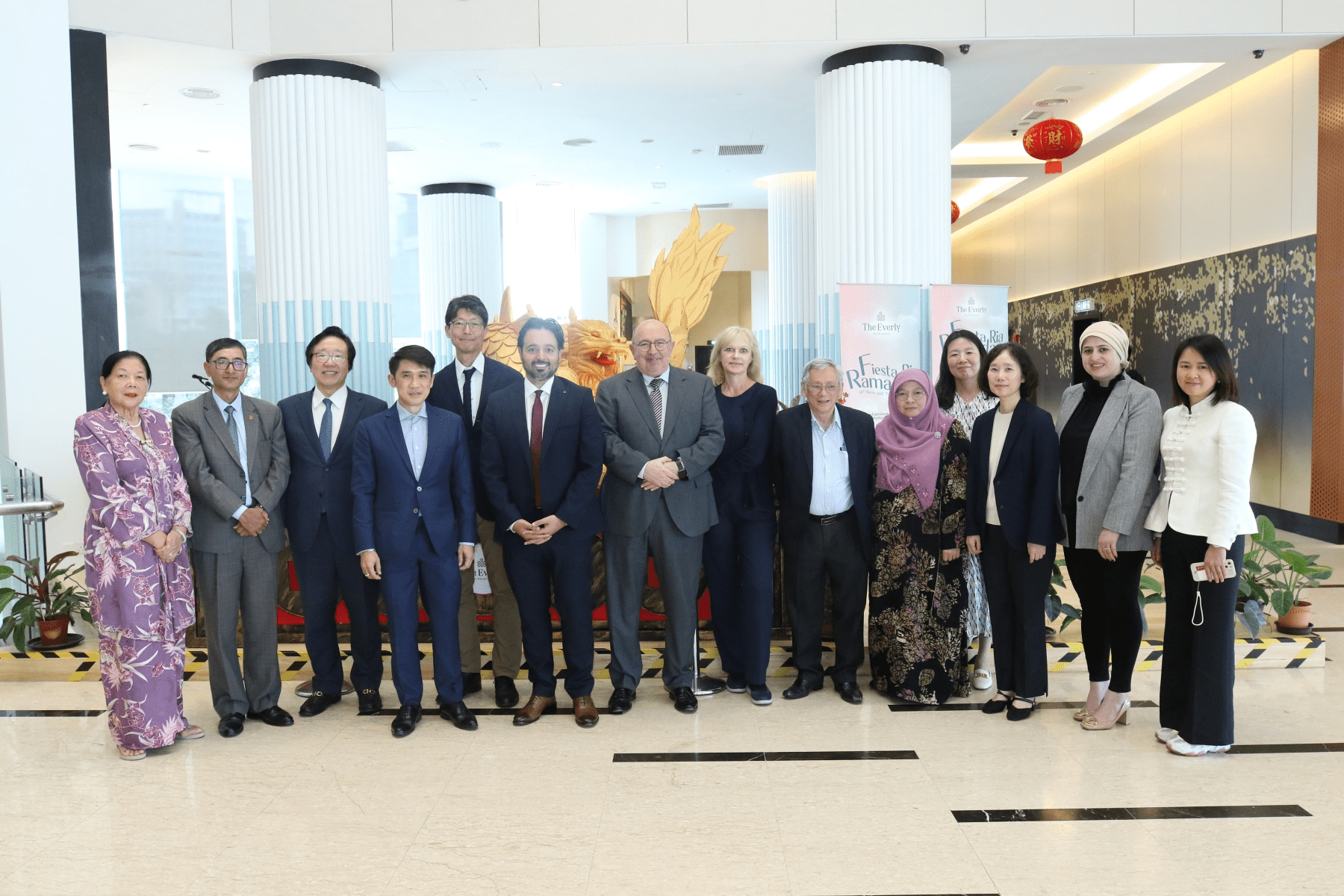
The event was held in partnership with the National Population and Family Development (LPPKN), the United Nations Department of Economic and Social Affairs (UNDESA), and the International Federation for Family Development (IFFD), the statement continued. Director General of the National Population and Family Development Board Abdul Shukur Abdullah began the event by discussing families and megatrends, and the importance of understanding a rapidly and ever-changing world. “The four megatrends require proactive responses that create opportunities and challenges to shape our present and future,” Abdullah said. “The Expert Group Meeting provides excellent opportunities for us to take the necessary measures to tackle the remaining and emerging challenges towards achieving the New Urban Agenda. Malaysia is honored to be part of this program and we hope this fruitful collaboration will continue for many years as we unite in pursuit of common goals,” he added. Director of the Family Research and Policy Department at DIFI Dr. Khalid Al-Naama said, “The profound interaction between the megatrends, and the fixed family ties, constitutes a landscape of interconnected forces.” “As individuals migrate, cities develop, technology advances and demographics shift, families stand at the heart of these transformations,” he added. Speaking about families in Asia, Director of Communication and International Relations at IFFD Ignacio Socias said that they are facing a dynamic landscape shaped by the four megatrends globally that are being studied for the 30th anniversary of the International Year of the Family (IYF). “Demographic trends influence family structures and sizes, impacting social dynamics and resource allocation. The rapid integration of new technologies transforms daily life, altering communication patterns and access to information,” he said. “Migration patterns often lead to separated families, challenging traditional support systems and cultural norms. Urbanization brings opportunities and challenges, reshaping living environments and family lifestyles affecting the well-being of Asian families.” Focal Point of the Family at the Division for Inclusive Social Development (DISD) of UNDESA Renata Kaczmarska said, “As we are celebrating the 30th anniversary of the IYF in 2024, we have been focusing on the impact of megatrends on families at regional levels. The Expert Group Meeting held in Malaysia has contributed to the understanding of the impact of megatrends on families, especially in terms of fertility and family formation in the region.” “The importance of investing in parenting education assisted by new technologies has been highlighted as needing cooperation between Government agencies, civil society, academia, and the private sector in overall family policy development and implementation,” she concluded. (QNA)
Migration represents one of the most important social phenomena of the late twentieth and early twenty-first centuries. International migration and internal migration are two fundamental categories that encompass the movement of individuals across geographical boundaries. While both terms refer to the relocation of people, they differ in the scale and nature of the migration process. International migration involves the movement of individuals across national borders, resulting in a change in citizenship. This type of migration can be motivated by a variety of factors, including economic opportunities, political stability, family reunification, or the pursuit of educational or professional advancements. International migration can be further categorized as voluntary or involuntary. Voluntary migration occurs when individuals choose to relocate for personal reasons, while involuntary migration is often the result of conflict, persecution, or natural disasters.
Internal migration, on the other hand, refers to the movement of individuals within the boundaries of a single country. This type of migration can be driven by factors such as rural-urban migration, urban sprawl, or the pursuit of better employment opportunities or educational facilities. Internal migration can also be influenced by government policies, regional economic disparities, and individual aspirations for a better quality of life.
The distinction between international and internal migration is significant for understanding the demographic patterns, economic dynamics, and social implications of population movements. International migration has a profound impact on both sending and receiving countries, influencing labor markets, economic development, and cultural exchange. Internal migration, while primarily affecting the distribution of population within a country, can also lead to urban growth, regional disparities, and the transformation of rural and urban landscapes.
Closely linked with migration is the rapid urbanization that is occurring in many parts of the world and is changing family structures. As migrants leave rural areas seeking opportunities in cities, urban areas are growing at an exponential pace. (1)
Both trends have a profound impact on family life, family relationships, and family practices:
The impact can be especially significant for the most vulnerable as children, older persons and persons with disability, particularly if they are forced to move due to conflict or displacement, as they may experience trauma, disrupted education, lack of mobility and other challenges that can affect their well-being and development.
Young people can also be heavily affected in terms of employment, housing and family formation. In that sense, it is now more important than ever to bear in mind that integration is an investment. (4-2)
Asia has been experiencing rapid urbanization and migration in recent decades. This has led to significant changes in the social, economic, and cultural landscape of the region. Migration from Asia to Northern America and Europe drove much of the increase in the number of Asian migrants outside the region, reaching a total of more than 46 million extra- regional migrants in 2020. (5-3)
Many migrant workers leave their families behind and only return home for brief visits. This has led to the development of new family structures and relationships, with grandparents often taking on a more prominent role in the upbringing of children.
In reply to these challenges, one of the biggest challenges faced by Asian cities is the need to provide adequate infrastructure and services to accommodate the growing urban population. This includes building new housing, transportation systems, and social services such as healthcare and education.
Policies and programs that support migration and well-planned and well-managed sustainable urbanization are closely related to the successful realization of the United Nations Agenda 2030, as localized by the New Urban Agenda. SDG 11 emphasizes the need for inclusive, safe, resilient, and sustainable cities and communities. Ensuring that families have access to adequate housing, basic services, and infrastructure, and that they are not left behind in the process of urbanization, is crucial for achieving it, and that is the policy framework of the New Urban Agenda.
Overall, the challenges posed by urbanization and migration in Asia are complex and require a coordinated effort by governments, civil society organizations, and individuals to address them effectively.

8:30 AM

Meejung Chin (South Korea),
Rumaya Juhari (Malaysia)
Opening Session
Speakers:
Renata Kaczmarska – Focal Point of the Family, UN DESA
Mr. Abdul Shukur Abdullah – Director General of LPPKN
Dr. Khalid Al Naama – Director of Family Policy and Research, DIFI
Dr. Ignacio Socias – Director of International Relations, IFFD Introduction of participants

9:00 AM

Meejung Chin (South Korea),
Rumaya Juhari (Malaysia)
Session 1
Moderator: Ignacio Socias

10:30 AM
Coffee Break

11:00 AM

Bhubate Samutachak (Thailand),
Rokuro Tabuchi (Japan)
Session 2
Moderator: Renata Kaczmarska

12:30 PM
Lunch

2:00 PM

Ki-Soo Eun (South Korea),
Ram Babu Bhagat (India)
Session 3
Moderator: Dana Alkahlout

3:30 PM

Sunil Babu Shrestha (Nepal),
Lishuang Chen (China)
Session 4
Moderator: Dana Alkahlout

5:00 PM
End

8:30 AM

Narimah Awin (Malaysia),
Jong-ik Lee (South Korea)
Session 5:
Moderator:
Renata Kaczmarska

10:00 AM
Coffee Break

10:30 AM

Recommendations
Session 6
Moderator: Dana Alkahlout

12:00 AM
End
01
Future Scenarios for Thai Families in 2040
Assoc.Prof.Bhubate Samutachak, Ph.D.
02
Cyber Jungle Guardian, Blue Elephant
Pro. Konkuk University
03
Transnational Migration , Gentrification, and Displacement
Seoul National University
04
Fertility Decline from a Perspective of Megatrends
Seoul National University
05
The impact of NEW TECHNOLOGY and CLIMATE CHANGE
Dato’ Dr Narimah Awin (Malaysia)
06
Housing and Urban Development
China Great Wall Society, Beijing, China
07
Emerging Trends in Domestic Migration Patterns in Japan
Rokuro TABUCHI (Sophia University, Japan)
08
Navigating the Nexus: Exploring Family Challenges amidst Migration
Rumaya Juhari, Ph. D
09
Urban Development and Housing in Nepal: Challenges and Opportunities
Dr. Sunil Babu Shrestha
10
Exploring the Implications of Fertility Decline in Malaysia
Tey Nai Peng, Universiti Malaya

Doha, Qatar, 28 October 2023: Major family formation trends in Latin America, as well as issues impacting recent family policy developments in the context of megatrends including fertility, mortality, and family dynamics, were highlighted at an event organized by Doha International Family Institute (DIFI) – a member of Qatar Foundation – during the Expert Group Meeting event held in Mexico City, Mexico.
Under the theme ‘Megatrends and Families: Focus on Demographic changes in Latin America’, the event was in preparation for the 30th anniversary of the International Year of the Family in 2024 (IYF+30) and was held in partnership with the Institute for Family Policy Analysis (IAPF), the United Nations Department of Economic and Social Affairs (UNDESA) and the International Federation for Family Development (IFFD).
Other topics addressed during the Expert Group Meeting (EGM) event included early childhood, parenting education, positive parenting, recognition of unpaid work and shared responsibility at home, youth transitions and labor inclusion, and the interlinkages between demographic trends, migration, and urbanization in contemporary Latin America.
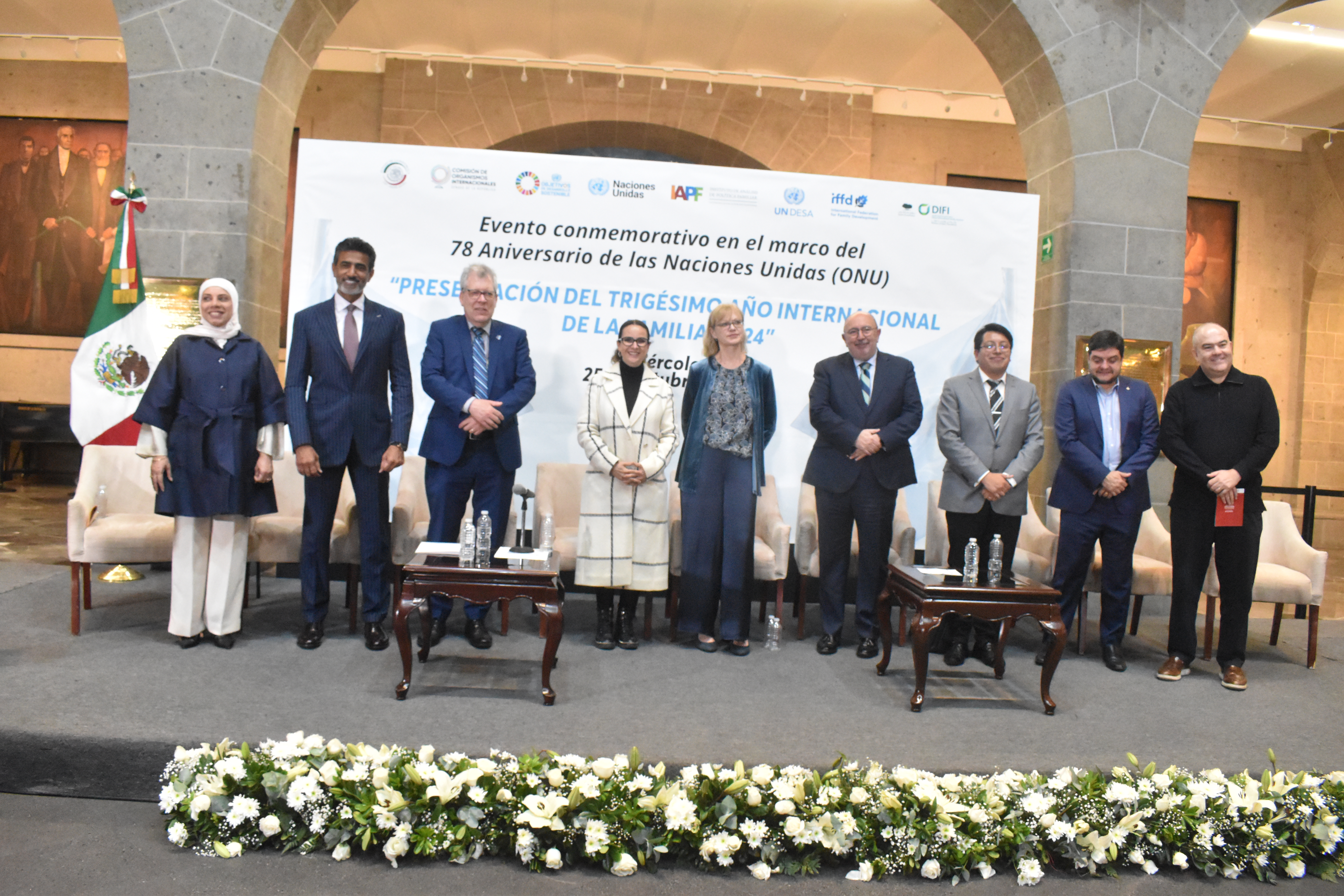
Dr. Sharifa Al-Emadi, Executive Director of DIFI, highlighted the importance of addressing the overarching trends and their implications on family policies globally, in preparation for the commemoration of the IYF+30 conference. “DIFI has played a crucial role in pushing for policy changes to support families not only in our region but worldwide, through actively engaging to generate evidence as well as nudging for policy change to support and empower families”.
Speaking on the preparations for IYF+30, Renata Kaczmarska, Focal Point of the Family at the Division for Inclusive Social Development (DISD) of UNDESA, said: “Responsive policies and programs that strengthen and support families help to reduce challenges brought about by demographic shifts. “Only a coordinated response will help to achieve stronger relationships and intergenerational solidarity within families and societies. The EGM is to analyze current demographic trends in the region and offer recommendations on the best ways to promote the wellbeing of families in Latin America in light of rapid demographic shifts.
Ignacio Socias, Director of Communication and International Relations at IFFD, said: “We are organizing this Latin American expert meeting because, in a region marked by diverse socio-economic disparities and a history of familial structures, robust family policies adapted to the present situation should play a pivotal role in promoting social cohesion and human development, not only as a means to empower individuals and families but also as a path towards achieving greater social equity and progress.”
Juan Antonio López Baljarg, Institute for Family Policy Analysis, stated: “The meeting of the Group of Experts “Megatrends and Families: Focus on demographic changes in Latin America” is a space to study the demographic changes that occur in this region in order to contribute to the objectives of the 30th Anniversary of the International Year of Family.”
Recommendations for future action including the importance of conducting more research on the demographic impact on family wellbeing to build a strong local infrastructure that supports urban families in Latin America, and developing, monitoring and implementation policy suggestions and interventions across areas such as fertility, mortality and family dynamics, early childhood, parenting education and positive parenting, youth transitions, labor inclusion and international migration.
The Instituto de Análisis de Política Famil- iar (IAPF), in partnership with the Focal Point on the Family, Division for Inclusive Social Development of the United Nations Department of Economic and Social Af- fairs (DESA), the International Federation for Family Development (IFFD) and Doha International Family Institute (DIFI) are or- ganizing an Expert Group Meeting on “Megatrends and Families: Focus on De- mographic changes in Latin America” to be held in México. The meeting will build on the modalities for the preparations for the 30th anniver- sary of the International Year of the Family (IYF+30), which focus on several mega- trends. The recommendations for the pre- paratory works have been reflected in the Reports of the United Nations Secretary General 2020 and 2021. In 2021, the Gen- eral Assembly’s resolution on the prepara- tions endorsed those recommendations and advised focusing on the trends of new technologies, migration, urbanization as well as demographic trends and climate change. According to the previously mentioned resolution and relevant United Nations mandates, the Expert Group Meeting aims to address specifically on demographic changes in Latin America.

09:00

Mexico
Introduction of participants
Speakers:
Sen. Nancy de la Sierra
Renata Kaczmarska (UN DESA)
Sharifa Noaman Al Emadi (Doha International Family Institute)

9:30

Mexico
Session 1
Fernando Pliego Professor, Universidad Nacional Autónoma de México (UNAM), Institute of Social Re-search
Francisco Javier Solís Gamboa Coordinador de políticas públicas, Instituto de Análisis de Política Familiar (Mexico)
Moderator: Alex Vázquez, International Federation for Family Development (IFFD)

11:00
Coffee Break

11:30

Mexico
Session 2
Ahmed M. Aref, Planning and Content Manager, Doha International Family Institute
Alejandra Mendoza Directora de Formación y Responsabilidad Empresarial, Instituto de Análisis de Polí-tica Familiar (Mexico)
Moderator: Ignacio Socias, International Federation for Family Development (IFFD)

13:00
Lunch

14:00

Mexico
Session 3
Simone Cecchini Chief of the Latin American and Caribbean Demographic Centre, Population Division of ECLAC
Gabriela Márquez National Coordinator, International Labour Organization (ILO) office for Cuba & Mexico
Moderator: Renata Kaczmarska (UN DESA)

15:30

Mexico
Wrap-up of the first day.

16:00
End

09:00

Mexico
Session 4:
Pablo Gluzmann Senior researcher, Center for Distributive, Labor and Social Studies (CEDLAS) of Uni- versidad Nacional de La Plata (Argentina)
Enrique Peláez Researcher – Professor, Facultad de Ciencias Económicas, Consejo Nacional de In- vestigaciones Científicas y Técnicas de (CONICET, Argentina)
Moderator: Juan Antonio López Baljarg , Instituto de Análisis de Política Familiar (IAPF)

10:30

Mexico
Session 5:
Elizabeth Thomas-Hope Professor, Department of Geography and Geology, University of the West Indies at Mona (Jamaica)
Cimar Aparicio Senior researcher, Center for Population, Geographical and Demographic Studies of Universidade Federal do Espírito Santo at Vitória (Brazil)
Moderator: Ignacio Socias , International Federation for Family Development (IFFD)

11:00

Mexico
Session 6
Moderator: Alex Vázquez International Federation for Family Development (IFFD)
Wrap-Up: Renata Kaczmarska (UN DESA)

12:00
End
01
Forjando un Futuro Sostenible
Megatrends & Families
02
Movilidad Residencialy Dinámica Familiar en las Áreas Metropolitanas de América Latina
Cimar Aparicio, UFES (Brazil)
03
Policy Development: How Institutions Can Support Policy that Advances Parenting
Dana El Kahlout, Advocacy and Outreach Lead, DIFI
04
Envejecimiento y Curso de Vida: Necesidad de una Mirada Integral en las Políticas Públicas
Dr. Enrique Peláez, CIECS CONICET, FCE-UNC
05
PROCESOS DE CAMBIO EN LAS ESTRUCTURAS DE FAMILIA Y BIENESTAR DE LA POBLACIÓN
DR. FERNANDO PLIEGO CARRASCO,INSTITUTO DE INVESTIGACIONES SOCIALES, UNIVERSIDAD NACIONAL AUTÓNOMA DE MÉXICO.
06
Fertilidad y mortalidad: una mirada desde las dinámicas familiares y provisión de servicios de apoyo
Senado de la República, México
07
Rumbo a la conciliación de la vida laboral y familiar
Gabriela Márquez Conde – Oficial Nacional de Proyecto
08
Claves para entender el Fenómeno de los NiNis en América Latina
Pablo Gluzmann, CEDLAS-FCE-UNLP & CONICET
09
Cuidados y envejecimiento en América Latina y el Caribe
Simone Cecchini, Director, CELADE – Population Division of the ECLAC
10
Exploring the Implications of Fertility Decline in Malaysia
Tey Nai Peng, Universiti Malaya
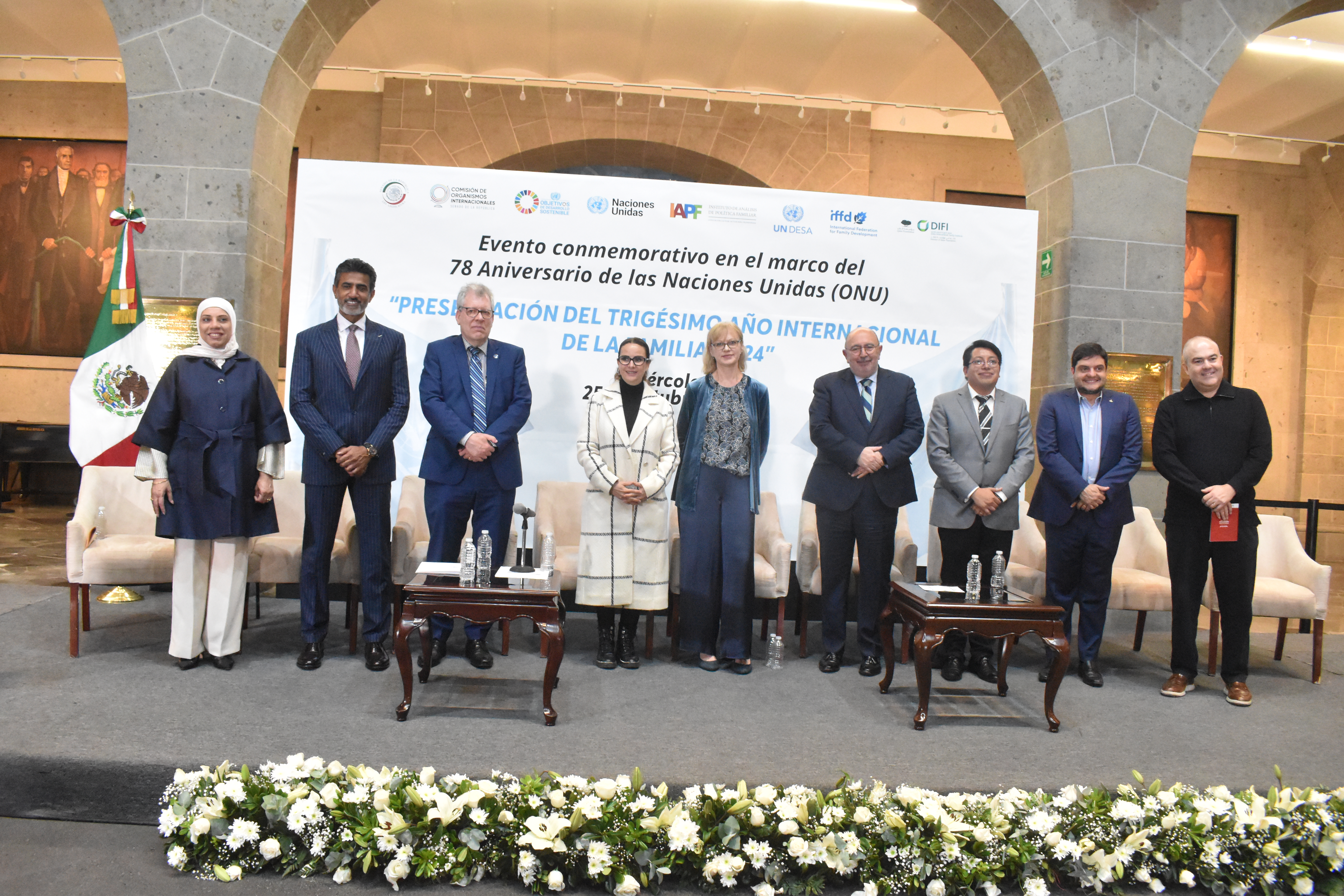

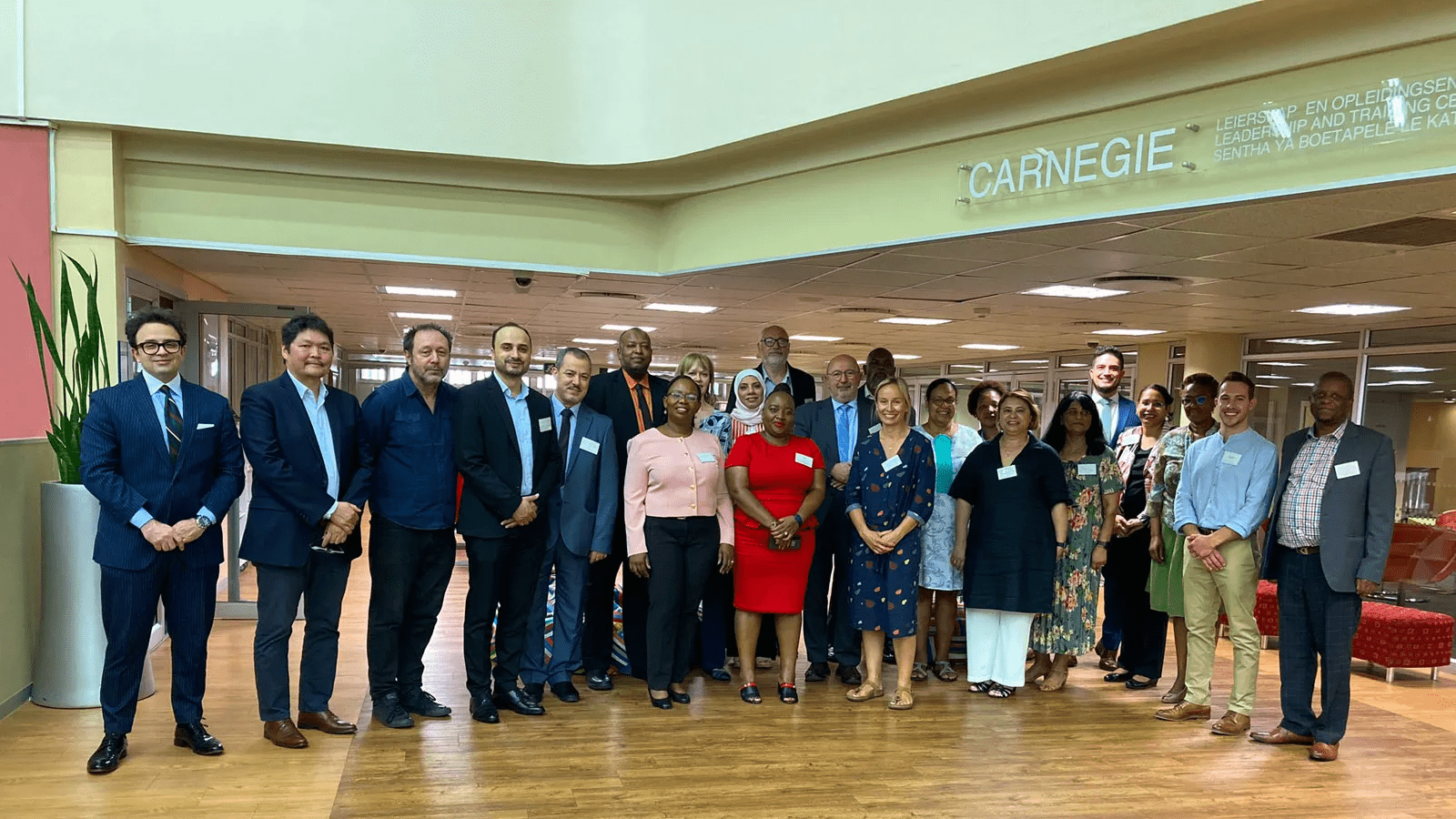
The impact of socio-economic and demographic transformation in Africa and its effect on family well-being were topics of discussion at an event organised by the Doha International Family Institute (DIFI) in preparation for the 30th anniversary of the International Year of the Family in 2024 (IYF+30).
The three-day Expert Group Meeting (EGM), held in Pretoria, South Africa, in partnership with the University of Pretoria, the United Nations (UN) Department of Economic and Social Affairs (DESA) and the International Federation for Family Development (IFFD) under the theme ‘Demographic Changes and Family Wellbeing in Africa’, saw experts’ discussions around the impact of demographic changes on family wellbeing in Africa.
They also addressed the major family formation trends in Africa and how these changes affected family wellbeing, the role of technology in these changes and its impact on digital parenting, the challenges and opportunities presented by social protection policy frameworks towards supporting elderly care in the region, the interlinkages between demographic trends, migration and urbanisation in contemporary Africa, and the major lessons learned in developing and implementing national and regional family policies.
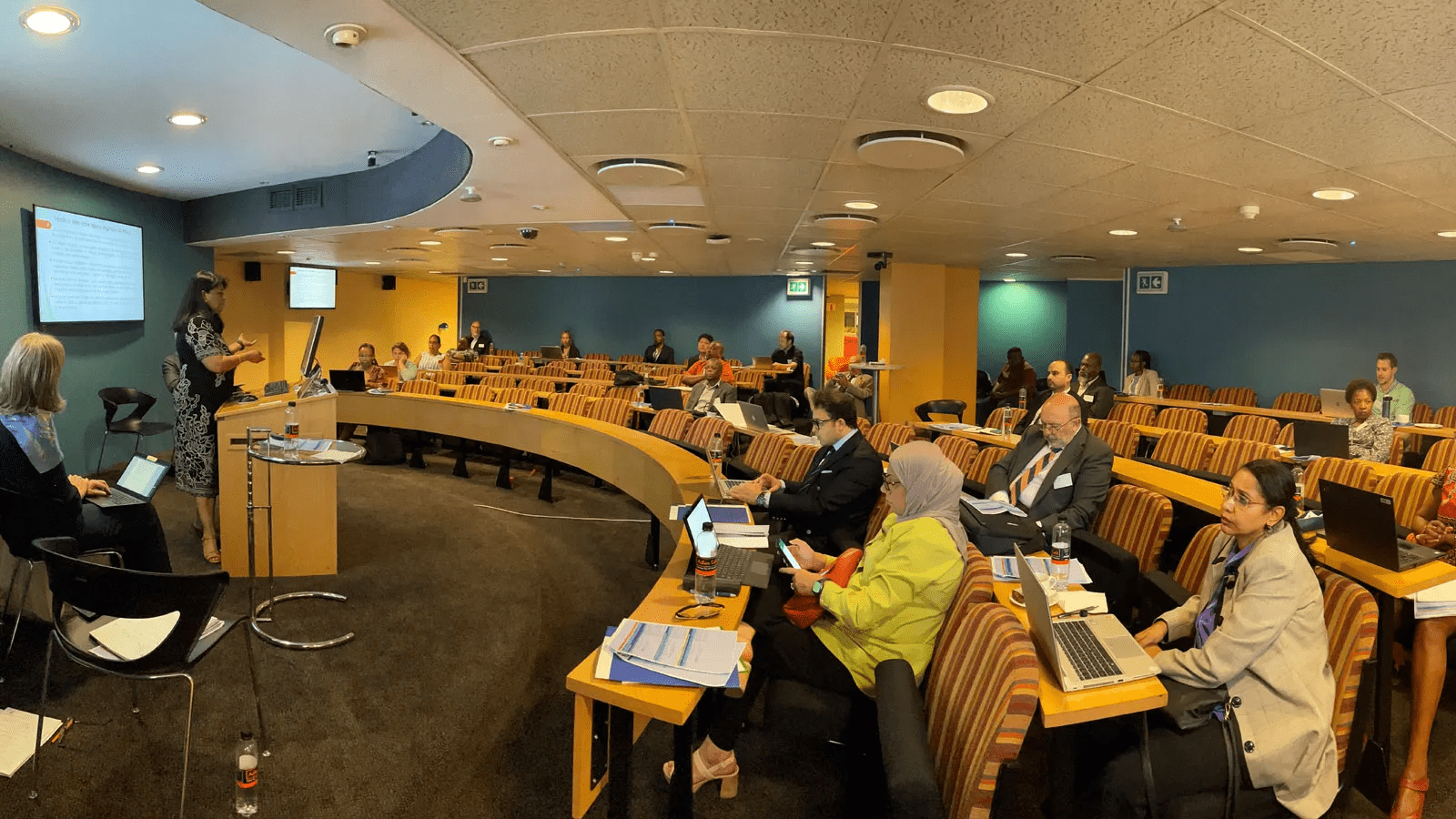
Dr Sharifa Noaman Al Emadi, executive director of DIFI, highlighted the importance of focusing on family wellbeing through a comprehensive approach, which DIFI, a member of Qatar Foundation, is tackling through policy-research and mobilisation.
She emphasised the importance of focusing on family wellbeing with holistic approaches, stressing that DIFI works to enhance family wellbeing and supports the making and development of policies related to research, scientific evidence and multiple advocacy efforts.
She also noted that demographic changes, accompanied by the shrinkage of traditional interactions between nuclear and extended families because of urbanisation and the fragility of related policies, as well as declining fertility rates and other demographic challenges, mean structural treatments and policy and programme support is required based on knowledge basis.
Speaking about the preparations for the IYF+30, Renata Kaczmarska, Focal Point of the Family at the Division for Inclusive Social Development (DISD) of the UN DESA, highlighted the importance of EGM recommendations to enrich the periodic UN Secretary General’s report on the family.
Ignacio Socias, director of Communication and International Relations at IFFD, outlined the importance of international programmes that support national development agendas “including the voice of parents and families in the discussion for better and holistic policy design, implementation and evaluation is extremely important.”
Professor Zitha Mokomane, professor at the Department of Sociology at the University of Pretoria, stressed that “while the important role of the family in society has been recognised everywhere in the world, it also needs to be substantiated through comprehensive family policies.”
Representative of the African Union Commission on Social Affairs Lefhoko Kesamang pointed out the need to develop Management Information Systems on the African Family for better data collection on family interventions at the regional level.
The Department of Sociology in the Faculty of Humanities at the University of Pretoria in cooperation with the Focal Point on the Family, Division for Inclusive Social Development (DISD) of the United Nations Department of Economic and Social Affairs (DESA), Doha International Family Institute (DIFI) and the International Federation for Family Development (IFFD) is organizing an Expert Group Meeting on “Demographic Changes and Family Wellbeing in Africa” to be held 23-25 January 2023 at the University of Pretoria in Pretoria, South Africa
The meeting is organized as part of the preparations for the thirtieth anniversary of the International Year of the Family, 2024 (IYF+30) and will build on the findings of the Expert Group Meeting held in 2020 which recommended focusing on several megatrends to guide the preparations. Those recommendations were reflected in the Reports of the Secretary-General (2020-2021). In 2021, the United Nations General Assembly resolution on the Preparations for the IYF+30 endorsed those recommendations and advised focusing on the trends of new technologies, migration, urbanization as well as demographic trends and climate change as part of the preparations for IYF+30. It is in accordance with this resolution and relevant United Nations mandates, that the Expert Group Meeting is to address demographic trends and their impact on families in Africa.
To mark the tenth anniversary of the International Year of the Family (IYF) in 1994, the African Union Commission adopted the Plan of Action on the Family in Africa which advocates for the “promotion, formulation, implementation and monitoring of policies to ensure the protection of and support to the African family so as to enable it to play its vital role more effectively in the development of Africa.”
At the time the Plan of Action on the Family in Africa was adopted, key challenges affecting the family in the region included high levels of poverty, inadequate social protection mechanisms, low levels of educational attainment, high levels of unemployment, gender inequality, rural to urban migration, displacement, family disintegration, poor sexual and reproductive health indicators and high levels of communicable diseases such as HIV and AIDS, malaria and tuberculosis.
In the three decades since the adoption of the Plan of Action, however, there have been significant socio-economic and demographic transformations that have direct and indirect implications for the well-being of families and their members in the region. It is for this reason that a focus on the family continues to be underscored in other regional instruments such as the African Union Social Policy Framework for Africa (2009) and the African Union Agenda 2063 (2013).
The planned Expert Group Meeting provides an opportunity to share good practices on policies and programmes that have improved family well-being, take stock of remaining and new family challenges, and recommend a way forward for the post-2024 period.

08:30

Pretoria
Registration and Tea
Speakers:
Prof. Sandy Africa, Deputy Dean; Faculty of Humanities, University of Pretoria
Renata Kaczmarska, Focal Point on the Family, United Nations Department of Economic and Social Affairs
Sharifa Al Emadi, Executive Director, Doha International Family Institute
Ignacio Socias, Director of Communications and International Relations, International Federation for Family Development

10:00

Pretoria
Session 1
Lefhoko Kesamang Department of Social Affairs – African Union Commission
Zitha Mokomane Department of Sociology – University of Pretoria
Moderator: Jane Wathuta, Strathmore University, Kenya

11:30

Pretoria
Session 2
Mohamed Mohieddin rofessor of Sociology and International Consultant; Egypt
Zitha Mokomane Department of Sociology, University of Pretoria
Moderator: Nicky Roman, University of the Western Cape

01:00
Lunch

01:30

Pretoria
Session 3
Sheren EL-Feki Chief of the Latin American and Caribbean Demographic Centre, Population Division of ECLAC
Elmoubasher Abu Baker Abd Farag Acting Head of Communicable Disease Control Programs, Supreme Council of Health, Qatar.
Shingairai Chigeza Department of Psychology University of Pretoria
Moderator: Ignacio Socias International Federation for Family Development

09:30

Pretoria
Session 4:
Elena Moore SUniversity of Cape Town
Dr. Achraf Othman ICT Accessibility Innovation and Research Section, Mada Center, Doha, Qatar
Moderator: Benlacence Badrane , Ibn Khaldon Center, Qatar

11:00

Pretoria
Session 5:
Mokhtar El Harras Mohamed V University, Rabat, Morocco
Pragna Rugunanan Department of Sociology, University of Johannesburg
Moderator: Renata Kaczmarska,, Focal Point on the Family -United Nations Department of Economic and Social Affairs

12:30
Lunch Break

13:30

Pretoria
Session 6
Moderator: Pragna Rugunanan Department of Sociology, University of Johannesburg
Ahmed Aref Doha International Family Institute • Charles Puttergill; Department of Sociology, University of Pretoria

15:00
End
01
How Ageism shapes the digital divide among older persons in Qatar
Dr. Achraf Othman
02
Interlinkages between Demographic Trends and Urbanization in North Africa
Ahmed Aref
03
Challenges and Advantages in Contemporary Africa, with Special Focus on North Africa
Badrane Benlahcene
04
FAMILY POLICY DEVELOPMENT IN SOUTH AFRICA
ProfS Tanusha Raniga and LAUREN GRAHAM
05
REGIONAL EXPERT GROUP MEETING ON “DEMOGRAPHIC CHANGES AND FAMILY WELLBEING IN AFRICA
PRETORIA, SOUTH AFRICA
06
Patterns of Marriage and Divorce in North African Countries
Mohamed Mohieddin
07
Migration and Demography in Africa: Interlinkages, Challenges and Opportunities
Mokhtar El Harras
08
Parenting in the Digital Era
09
Demographic Changes and Family Wellbeing in Africa
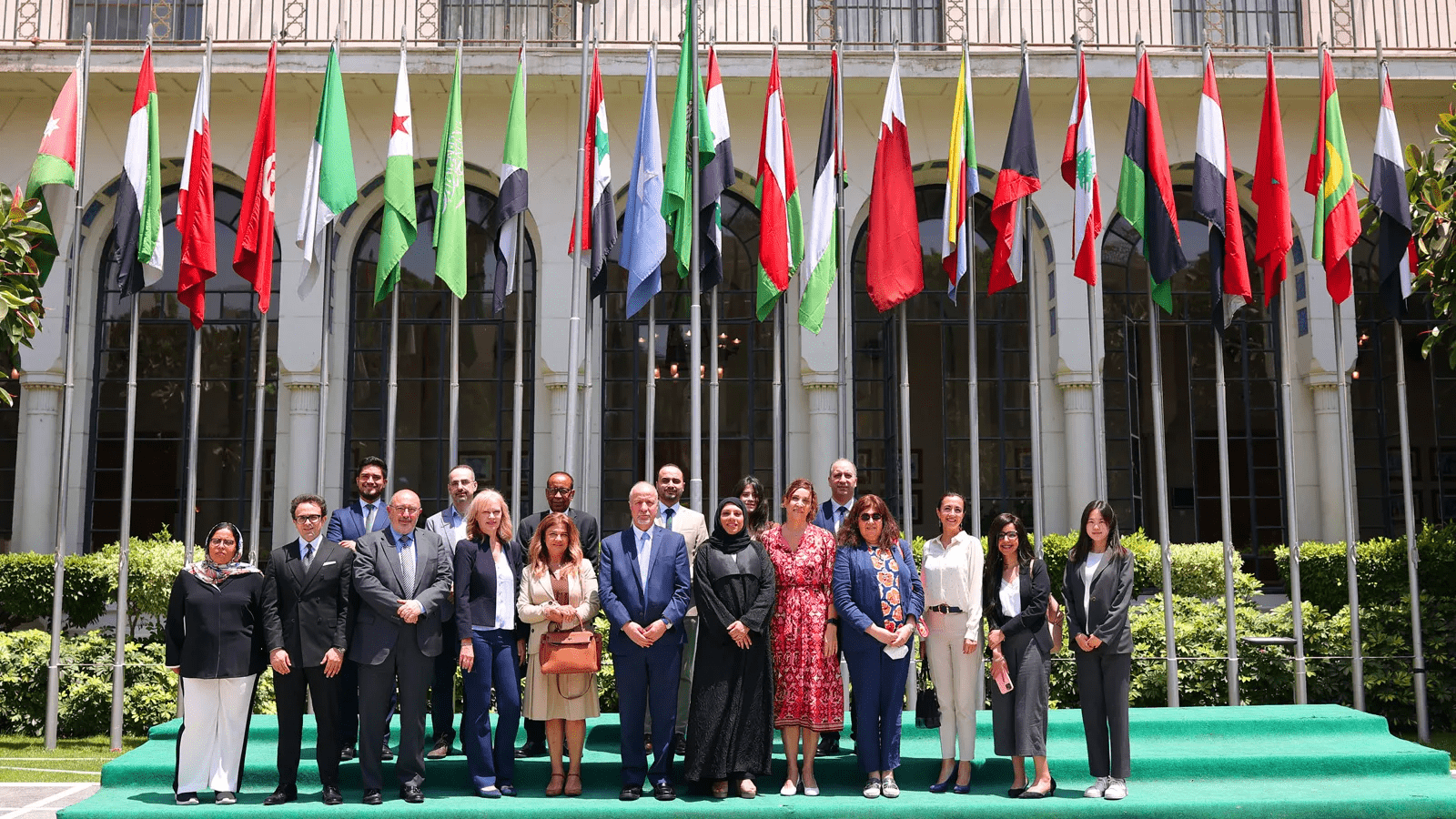
The Doha International Family Institute (DIFI), a member of Qatar Foundation for Education, Science and Community Development (QF), organized a preparatory meeting of experts to celebrate the 30th anniversary of the International Year of the Family, held in Cairo in partnership with the United Nations Department of Economic and Social Affairs and the United Nations Population Fund in the Arab States region.
In a statement, the institute stated that the two-day meeting shed light on the topics of technological change and the family in the Arab region in preparation for the convening of the international conference in Doha this year.
The meeting also included a series of discussions, namely the topics of the positive and negative effects of technology on the Arab family, a review of international experiences on digital parenting programs, the importance of technology in supporting work-family balance, and enhancing the provision of family care services for the elderly through assistive technology.

In addition, the discussions also reviewed the topics of the effects of violence and cyberbullying on the well-being of children and young people, digital addiction and its repercussions on marital and parenting relationships, social technology and its impact on family life variables and caring for the elderly in the 21st century.
The meeting concluded with the importance of expanding families use of information technology, developing family capabilities, developing guiding mechanisms to protect families, especially children and adolescents, from violence and cyberbullying, as well as investing in assistive technology to provide a better experience for the care of the elderly and inclusion of people with disabilities, creating and developing evidence-based parenting programs, examining the relationship between digital addiction and the family environment, and developing theory-informed and data-backed solutions.
In this regard, Executive Director of DIFI Dr. Sherifa Noman Al Emadi confirmed that the Institute plays a crucial role in advocating family policies within the international development agenda in cooperation with the UN in various aspects, taking into account the leading role played by the Institute in organizing the annual conferences prior to the International Year of the Family, and the accompanying preparatory events.
In turn, Professor of Information and Computing Technology at Hamad Bin Khalifa University Dr. Raian Ali stressed the need to understand the nature of family relationships and their relationship to modern technology. It is necessary to understand the interrelationship between technology use and the family environment, he stressed, in order to be able to design intervention and counseling programs on technology use and overuse. He added that digital education programs and tools must be contextual and culturally sensitive, and there is a need to research beyond general concepts of digital addiction and digital well-being, delves into details, and studies the nuances and different features of digital media, as well as family structure and values. (QNA)

08:30

Cairo
Registration
Speakers:
Dr. Sharifa Al Emadi, Executive Director, DIFI
Ms. Renata Kaczmarska, Focal Point on the Family, UN DESA
Dr. Luay Shabaneh, Regional Director, UNFPA ASRO

09:30

Cairo
Session 1

11:45
Break

11:15

Cairo
Session 2
This session will focus on the role of technology on work-family balance.
Susan K. Walker, Ph.D. Associate Professor Department of Family Social Science University of Minnesota
Mohamed Gamal Abdelmonem, Professor of Architecture, Nottingham Trent University

12:30
Lunch

13:45

Cairo
Session 3
This session will also focus on the role of technology on the adolescent and family wellbeing during COVID-19 and beyond.

09:00

Cairo
Session 4:

10:15
Break

10:45

Cairo
Session 5:
Susan K. Walker, Ph.D. Associate Professor Department of Family Social Science University of Minnesota

12:00
Lunch

12:45

Cairo
Session 6

14:00
Closing Remarks